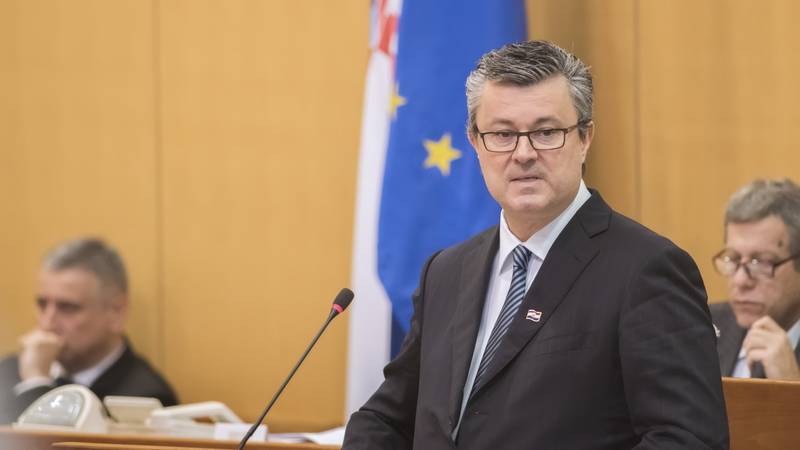EC Is Closely Monitoring the Media Situation in Croatia
Adelina Marini, March 15, 2016
 "The independence of regulatory authorities in the audiovisual field is a very important issue. They are key to safeguarding media pluralism and media freedom. The Commission is therefore closely following recent developments in Croatia, whereby the government proposed the replacement of the entire Board of the audiovisual regulatory authority", said a spokesperson for the EC, answering euinside’s question regarding the serious changes, which are happening in Croatia’s media environment after the inauguration of the new government, headed by Tihomir Orešković. As euinside reported, under pressure by the senior coalition partner – the Patriotic coalition, led by Tomislav Karamarko, leader of the largest party in it, Croatian Democratic Union (EPP) – the Director General of the Croatian national television and radio was replaced.
"The independence of regulatory authorities in the audiovisual field is a very important issue. They are key to safeguarding media pluralism and media freedom. The Commission is therefore closely following recent developments in Croatia, whereby the government proposed the replacement of the entire Board of the audiovisual regulatory authority", said a spokesperson for the EC, answering euinside’s question regarding the serious changes, which are happening in Croatia’s media environment after the inauguration of the new government, headed by Tihomir Orešković. As euinside reported, under pressure by the senior coalition partner – the Patriotic coalition, led by Tomislav Karamarko, leader of the largest party in it, Croatian Democratic Union (EPP) – the Director General of the Croatian national television and radio was replaced.
Important editorial changes followed in the television after his removal – almost all news anchors of HRT have been replaced. Last week, the government dismissed the report for 2014 of the Croatian Council for Electronic Media (CEM) and asked for the replacement of its management, led by Ms Mirjana Rakić. The EC did not comment on the replacements in HRT, only the declared wish for changes in the CEM. According to the EC, the current audiovisual rules do not provide legal background for enforcing independence of regulatory bodies. So the Commission will attempt to ensure the mandatory independence of regulators through a revision of the audiovisual rules in the EU.
The Commission did not answer euinside’s question whether it will undertake similar measures against Croatia as it did against Poland, where the new conservative government, made up of the eurosceptic Law and Justice party, also started with a media purge and removing the Polish CEM. At the moment, there is an active procedure trying to find out whether the rule of law has been breached in Poland. Regarding the procedure, Prime Minister Beata Szydło was called for a hearing in the European Parliament. It is yet unclear whether a similar procedure will be started against Croatia. The opinion of the Venice Commission came out last week, regarding the rapid legislation changes in Poland, concerning the powers and the composition of the Constitutional Court.
In it, the commission determined that there is a clear and present danger to the rule of law, democracy and human rights. There are recommendations extended to the Polish government as well. Prime Minister Beata Szydło did threaten last week, however, that she would not accept the opinion, and even not allow its official publishing in Poland. The leader of Law and Justice, Jarosław Kaczyński, also denounced the opinion, calling it the “private” opinion of a “certain group of people”, reported Radio Poland.
There are impending replacements of members of the Constitutional Court in Croatia as well and the disputes are already gathering momentum. Regarding the replacements in the national television, in an interview [in Croatian] for the mass daily newspaper Jutarnji list the new boss of the information section of the HRT, Katarina Periša Čakarun, explained that there was no political pressure on the television and the replacements were done with the idea of improving the programmes and content. She reminded that no one has their spot reserved for them forever.
Translated by Stanimir Stoev
 Kolinda Grabar-Kitarovic | © KGK
Kolinda Grabar-Kitarovic | © KGK Jozo Rados | © European Parliament
Jozo Rados | © European Parliament Aleksandar Vucic, Andrej Plenkovic | © Vlada RH
Aleksandar Vucic, Andrej Plenkovic | © Vlada RH